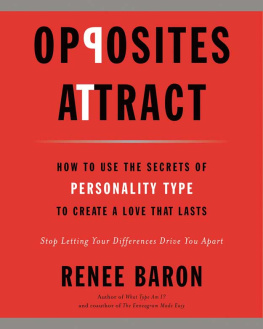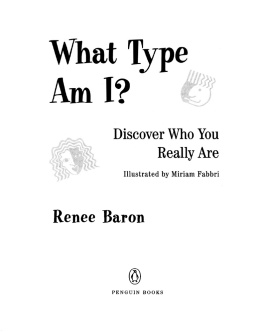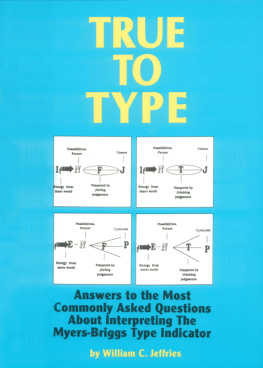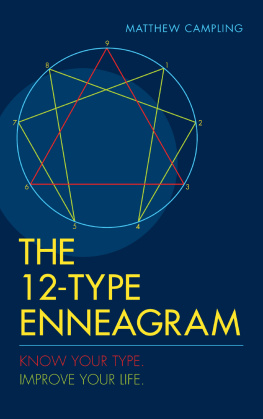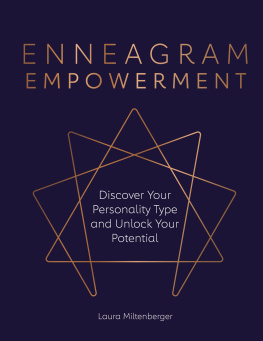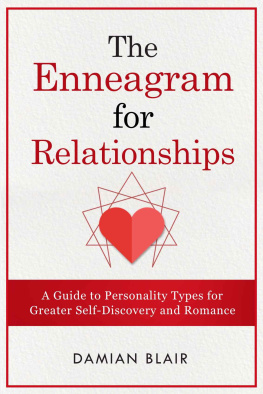Does it frustrate you that your quiet, reserved spouse never wants to have people over and you love socializing and entertaining?
Do you consider your partner to be rigid and uptight because she nags you about your messy office?
Are you fond of schedules and routines, but your casual and spontaneous boyfriend wants to just go with the flow and see whatever turns up?
Do you think of yourself as the arty, creative type, yet the love of your life is Mr. (or Ms.) Good Common Sense?
If sowelcome to the club!
In our relationships, especially our intimate ones, we often are attracted to people who are different from us. We seem to have an instinctive need to search for some missing part of ourselves in another person, whom we then depend on to supply the qualities that we lack or have not yet developed. The reserved person, for example, may depend on a mate who is outgoing and gregarious to provide a social circle, and the talkative, outgoing type may crave a partner who wont compete with him for attention.
In the beginning these differences are positive, intriguing, even dazzling. We think that weve found the perfect match. And then a little time goes by. The infatuation fades, the newness wears off, the honeymoon is overand all that was appealing before starts to become downright irritating.
Perhaps your partner, whose levelheadedness and rationality you once admired and appreciated for balancing out your flighty, emotional personality, now drives you crazy with his coldness. Instead of lending a sympathetic ear when you have a problem, he quickly offers advice about how you should fix it. Meanwhile, he doesnt understand why you take remarks so personally and why your feelings are always getting hurt.
Perhaps, at first, your partners ability to converse with many people was inspiring and invigorating. Now her chatter drives you up the wall, and you wish she could keep some of her thoughts to herself. You like a lot of solitude and time to yourself, and its bothersome to be dragged to social events every weekend. Her need for interaction versus your need for solitude is driving the two of you apart.
Or maybe your spouse is that open-ended, go-with-the-flow person who always wants to change plans at the last minute, and you like having things settled and decided. He drags his heels, procrastinates, is always running at least half an hour late, and wonders why you cant seem to relax and let go once in a while.
Men are from Earth. Women are from Earth. Deal with it.
GEORGE CARLIN
Psychologists have many theories about why people can have such a hard time finding and sustaining healthy and satisfying relationships. We are often taught that gender is to blame; men and women are fundamentally different, according to this theory, and it has even been said, metaphorically, that they come from different planets. Although its true that some women fit the stereotype of being sensitive, tenderhearted, and emotional, just as some men fit the stereotype of being logical, analytical, and emotionally self-contained, studies demonstrate that such men and women represent less than half of the population. Theories based on gender may benefit some of us, but they are not particularly useful to the majority of the population whose personalities do not conform to the stereotypes.

So if gender doesnt entirely account for the difficulties and conflicts we encounter as we try to maintain satisfying relationships, what does? Forty years ago, I was introduced to the concept of personality preferences in a workshop on the Myers-Briggs Type Indicator (MBTI) inventory. I was both fascinated and astounded by this theory of human differences, which appeared to answer many long-held questions as to why people have such a hard time in their relationshipsnot only their intimate partnerships but their relationships with their children, siblings, co-workers, and friends. My study of the MBTI system over many decades, combined with my eyewitness perspective as a marriage and family therapist during that time, has led me to believe that personality preferences account for a great deal of what goes on between human beings.
A Brief History
The concept of personality preferences was originally developed by Carl Jung, the prominent Swiss psychoanalyst, and set forth in his well-known book Psychological Types , published in English in 1923. One reader profoundly affected by Jungs concept was an American woman, Katharine Briggs, an astute student of human nature who had already spent some years in an independent study of personality preferences and had developed her own typology. Recognizing that Jungs theory went far beyond her own, Briggs recruited her Swarthmore-educated daughter, Isabel Myers, to collaborate with her in studying and expanding the theory even further. Their aim was to help people better understand themselves and others by determining their personality types.
During the 1940s, Briggs and Myers created the first version of the now-famous questionnaire that measures inherent and observable differences in human behaviorthat is, personality types. Over the years the mother-daughter team refined the questionnaire through diligent research. When Consulting Psychologists Press (CPP) took over the publication of the questionnaire in 1975, it became readily available for use by psychologists, career counselors, others in the helping professions, and those simply seeking a deeper understanding of themselves. Today the MBTI inventory, taken by two million people each year, is the most widely used and respected personality assessment instrument in the world.
In creating the MBTI inventory, Myers and Briggs had two goals in mind. The first was to allow respondents to identify their basic preference on each of four dimensions: (1) what energizes them, (2) how they experience the world, (3) how they make decisions, and (4) how
Personality Preferences
The inventory is composed of four sets of opposite personality preferencesextraverting versus introverting, sensing versus intuiting, thinking versus feeling, and judging versus perceiving. Please note that the MBTI inventory describes the preferences as adjectives but that, for the sake of simplicity, I use them as nounsExtravert-Introvert, Sensor-Intuitive, Thinker-Feeler, and Judger-Perceiver. Its important, however, to keep the adjectival sense of each word in mind. For example, describing yourself as an introvert is a shorthand way of saying that you lean toward the introverting side of the scale, that you prefer introversion over extraversion.
These personality preferences describe different patterns of behavior that affect and determine how we function and act in the world. Differences in preferences have a profound impact on every aspect of our livesfrom the way we get our energy to how we see the world and focus our attention, to how we make decisions, to how we like to live our daily lives.
1. The Energizing Preference: Extraverting-Introverting
This preference relates to where we focus our attention and what energizes us.
- Extraverts focus their attention outward and draw energy from the external world of people and things.
- Introverts focus their attention inward and draw energy from their own inner world of thoughts and insights.
2. The Perceiving Preference: Sensing-Intuiting

